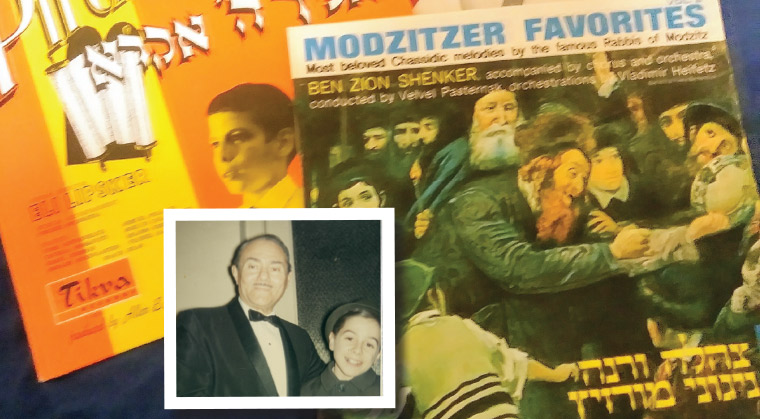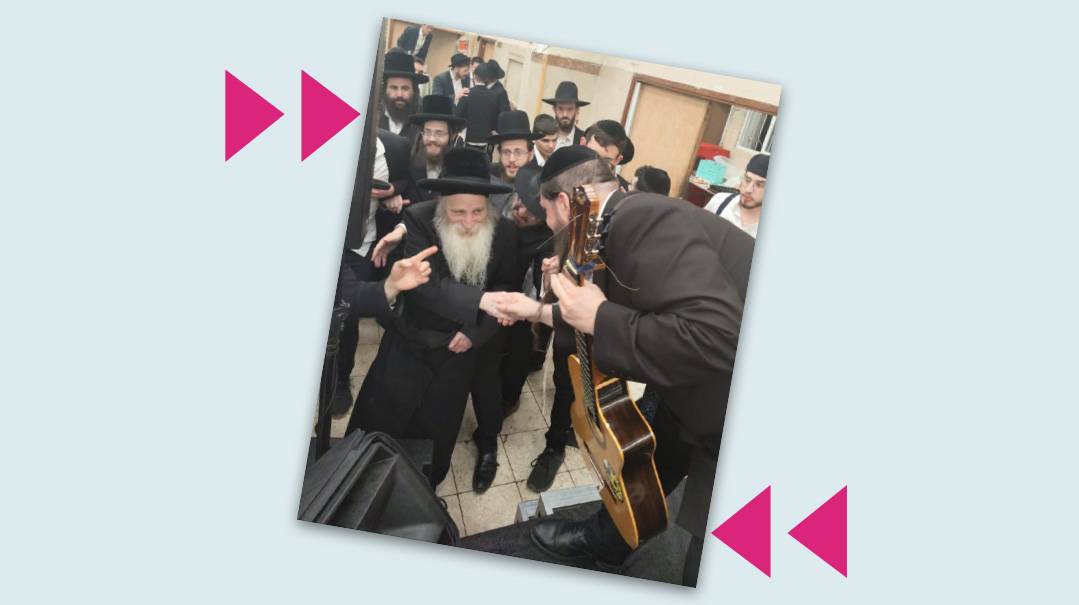Yussi Sonnenblick never imagined they’d be singing “Eilecha” half a century later
| May 23, 2018
M
ention the name Yussi Sonnenblick to any Jewish music aficionado, and he’ll likely recall some of the famous early Pirchei songs, perhaps Baruch Chait’s “Mi Ho’ish,” “Eilecha Hashem Ekra,” or “Racheim Bechasdecha.” Back in the 1960s, Yussi was Pirchei’s first star soloist, a child prodigy with a golden voice. His iconic “Eilecha” solo captured the voice of that generation’s Pirchei youth: fresh, energetic, and sincere. Yet along with the Pirchei recordings, he also performed as child soloist for Chazzan Moshe Koussevitzky, a lyric tenor with a glorious voice and one of the most celebrated chazzanim of the 20th century, and for Ben Zion Shenker, whose Modzhitzer compositions became classics.
Yussi’s singing career began with the encouragement of his father, who recognized the special star quality of his voice. “It was my father, a big fan of chazzanus, who brought me to Boro Park for an audition to sing with Chazzan Koussevitzky,” recalls Sonnenblick, who years later went on to join Abie Rotenberg on the Dveykus and Journeys albums. “Every Shabbos Mevarchim, I would come to Boro Park to sing at Temple Beth El. Cantor Koussevitzky was awesome, he had a tremendous presence, but all I had to do was sing my bit. As a young boy, singing in that venue was pretty frightening, but once I got over the fear of singing publicly, it helped me later on when I continued to sing in other venues.”
Up there in the Beth El choir box, which was located way above the aron kodesh facing the people in the shul, the atmosphere was serious and focused, but he remembers once getting a peek at an interesting newcomer who entered the shul in the middle of Yom Kippur 1965.
“I was always a big baseball fan, and that year, Sandy Koufax was pitching for the Dodgers and was supposed to start the first game of the World Series, which he famously sat out because it was Yom Kippur. Up in the choir box, I thought I spotted Koufax, who lived in Brooklyn, walking into shul. I promptly started a rumor in the choir box that he was here in Beth El and the kids were all craning to see him — the best pitcher in the world came to hear the best chazzan in the world. We never found out for sure, so until today I don’t know if what I saw was real or pure fantasy.”
In 1964, Yussi was the child soloist for a recording of Modzhitz niggunim under the direction of Reb Ben Zion Shenker. In those days, he explains, getting it right was more crucial than today. “We went to the studio with a live orchestra and an adult choir to accompany Ben Zion, who had very high professional standards. The songs on the album, Modzitzer Favorites Volume 2, were sung live together with the orchestra, so we didn’t have the leeway to do it over again until we got it right, unlike music today, which can be fixed up with technology.”
Velvel Pasternak, who conducted and arranged the Modzhitzer albums, was also the choir leader at the Yeshiva of South Shore in Woodmere where Yussi went to school; he was the one who brought Yussi onto the Modzhitzer recording. That’s how Yussi met Eli Lipsker, who was a member of Shenker’s adult choir and was also the director and conductor of the nascent Pirchei choir. And Rabbi Eli Teitelbaum, who had developed a warm friendship with Yussi’s father, was one of the directors of Pirchei (he even played clarinet on the albums). He was also the founder of Camp Sdei Chemed and the Dial-a-Daf tapes.
“I was a kid from Laurelton, Queens, and I learned in Yeshiva of South Shore, so I wasn’t part of Pirchei, which was mostly based in Brooklyn at that time. I didn’t know any of the kids in the choir either. I just came down to the studio, and Rabbi Teitelbaum and Eli Lipsker told me what to sing,” Yussi remembers.
Looking back, he says the early Pirchei albums were pretty simple, compared to the full orchestra of Modzhitz. “The music was very basic, no fancy arrangements, and just two or three instruments on many of the songs — almost like a rebbi singing with his kids at a kumzitz.” But Pirchei was the first children’s choir to release an album, the tunes were hartzig and catchy, and many of those songs have remained classics until today.
Soon everyone was singing those songs. “Because there was so little music — even the Rabbis’ Sons wasn’t out yet — everyone was playing Pirchei. The choice of Jewish music at that time was either Carlebach, or Modzhitz, or Pirchei, and that was it.” The stardom was instant, but it didn’t go to Yussi’s head. “I was still a normal kid. I continued to collect baseball cards like any other boy.”
And 50 years later, he says, “It’s nice to hear people still singing those songs at weddings, at a kumzitz, or for davening.” Yussi hopes to put together an album of those songs, so that today’s generation will continue to enjoy the classics of yesteryear. (Originally featured in Mishpacha, Issue 711)
Oops! We could not locate your form.












